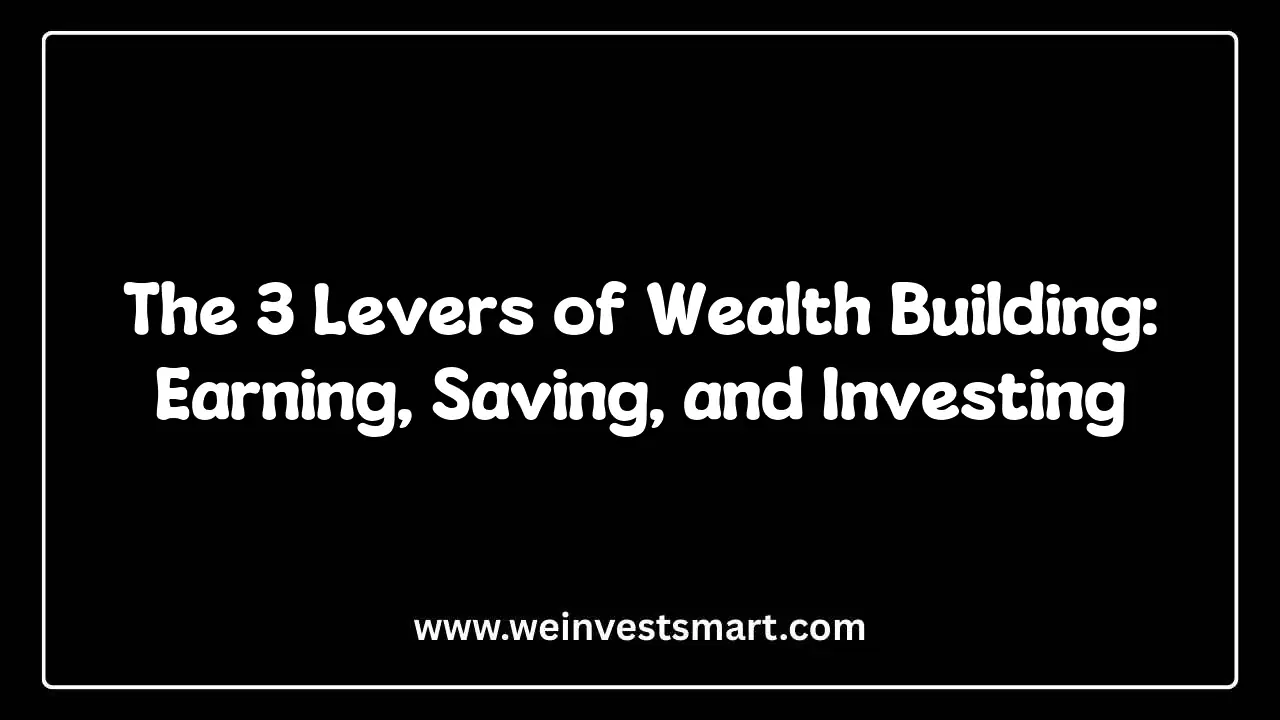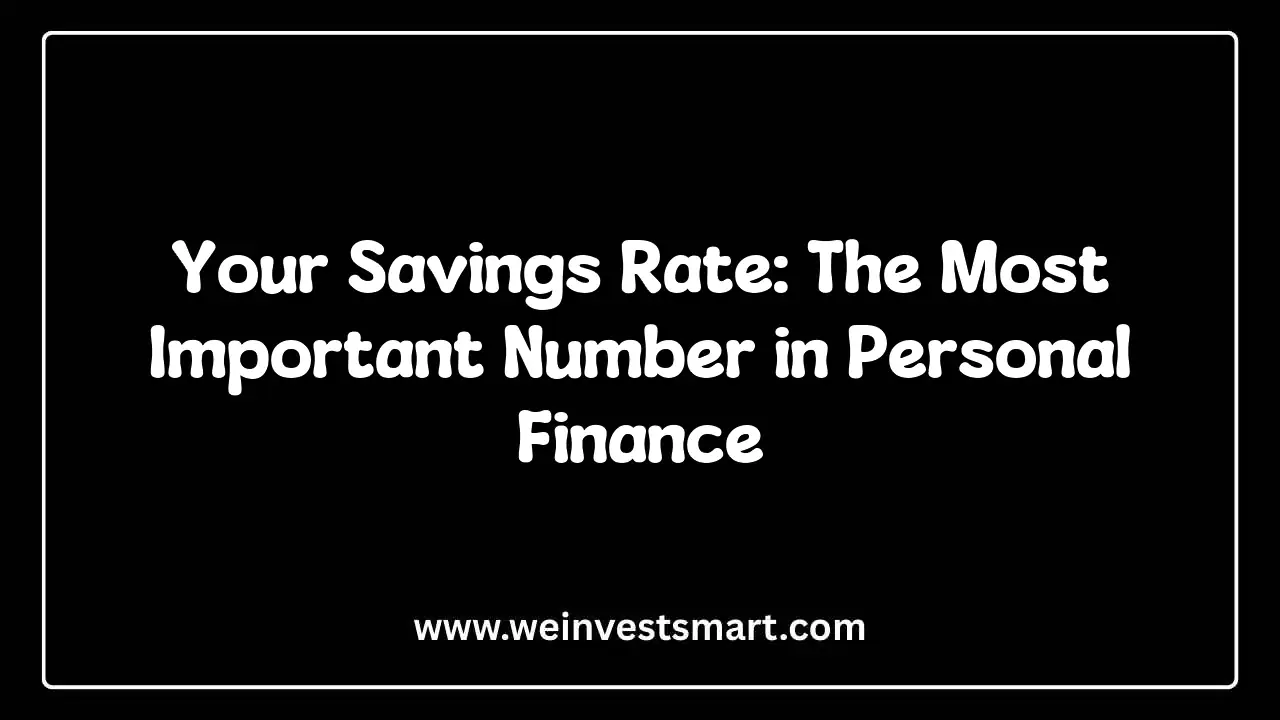· WeInvestSmart Team · wealth-building · 10 min read
Net Worth vs. Income: Why Your Balance Sheet is More Important Than Your Paycheck
A mindset-shifting post. Explain that high-income individuals can still be broke if they have high debt and low assets. Emphasize that the ultimate goal is to increase net worth, the true measure of wealth.
In our society, we have a deeply ingrained, almost primal, way of measuring financial success: the paycheck. “How much do you make?” is the question that defines our careers, fuels our ambitions, and shapes our social standing. We are conditioned to believe that a high income is the ultimate goal, the undeniable sign that you have “made it.” But here’s the uncomfortable truth: your income is one of the most misleading and dangerously incomplete measures of your financial well-being. It’s a vanity metric that tells you how much money passes through your hands, but says nothing about how much you actually keep.
Going straight to the point, you can earn a million dollars a year and still be broke. The problem isn’t our obsession with money; it’s our obsession with the wrong number. We’re relentlessly focused on the profit and loss statement (our income) while completely ignoring the most important financial document of all: the balance sheet.
But what if we told you that the true measure of wealth has almost nothing to do with the size of your paycheck? What if a schoolteacher earning $60,000 a year could be far wealthier than a surgeon earning $600,000? Here’s where things get interesting. This isn’t a hypothetical riddle; it’s a financial reality for millions. The key is shifting your focus from income to net worth. And this is just a very long way of saying that it’s time to stop asking how much you make and start asking how much you’re worth.
The High-Income Illusion: The Road to Broke is Paved with Big Paychecks
We’ve all seen them: the doctor with the new Porsche, the lawyer in the sprawling mansion, the tech executive with the globe-trotting vacation photos. They are the picture of success. But often, beneath this glittering surface of high consumption lies a fragile financial foundation. This phenomenon is so common it has a name: HENRYs—High Earners, Not Rich Yet. Despite six-figure incomes, a significant number of these individuals are living paycheck to paycheck, crushed under a mountain of debt.
The funny thing is that a high income often acts as a catalyst for poor financial habits. It creates a false sense of security, encouraging a mindset of “I can afford it.” This leads directly to lifestyle inflation, the silent killer of wealth. As income rises, spending rises to meet or exceed it. The modest apartment becomes a mortgaged house. The reliable sedan becomes a leased luxury car. The budget-friendly vacation becomes a five-star resort trip. Each step up in income is matched by a step up in liabilities, creating a gilded cage where, despite earning more, they save nothing. Their balance sheet is a disaster: a few depreciating assets propped up by a mountain of debt.
This is the great paradox: income makes you feel rich, but it doesn’t make you wealthy. Wealth is not about spending; it’s about owning. It’s about what you’ve accumulated, not what you’ve earned. A high income gives you the potential to build wealth faster, but it guarantees nothing.
You may also be interested in: The Millionaire Next Door: 7 Surprising Habits of Everyday Millionaires
The Balance Sheet Mentality: Your True Financial North Star
So, if income is a flawed metric, what should we focus on? The answer is your net worth. Going straight to the point, your net worth is the single most honest and comprehensive measure of your financial position. It’s calculated with a simple, unforgiving formula:
Assets - Liabilities = Net Worth
Think of this as your personal balance sheet. It provides a clear snapshot of your financial health at a specific point in time. Let’s break down the components:
- Assets: These are all the things you own that have monetary value. This includes cash in your checking and savings accounts, the value of your investments (stocks, bonds, retirement accounts), the market value of your home, the resale value of your car, and any other valuable possessions.
- Liabilities: These are all the things you owe. This includes your mortgage balance, credit card debt, student loans, car loans, personal loans, and any other outstanding debts.
The resulting number—your net worth—is your true wealth. A positive and growing net worth indicates good financial health. A negative net worth, common for recent graduates with student loans, means you owe more than you own. The ultimate goal of your financial life should be to make this number go up, consistently, over time.
You may also be interested in: The Ladder of Personal Finance: A Visual Guide to Building Wealth
Why the Balance Sheet is More Important Than Your Paycheck
Focusing on your net worth instead of your income fundamentally changes your behavior and decision-making. It forces you to adopt a long-term, strategic mindset.
1. It Encourages Ownership, Not Just Earning
An income-focused mindset asks, “How can I earn more to afford this?” A net worth-focused mindset asks, “Will this purchase increase or decrease my net worth?” This simple question reframes every financial decision. A luxury car, for example, is a massive liability. It requires a loan (increasing liabilities) and rapidly depreciates (decreasing its asset value). An income-focused person sees only the monthly payment. A net worth-focused person sees the devastating impact on their balance sheet. Conversely, buying an income-producing asset, like a rental property, increases both your assets (the property) and your liabilities (the mortgage), but is structured to grow your net worth over time through equity paydown and appreciation.
2. It Highlights the True Cost of Debt
On a paycheck, debt is just a monthly payment, a small deduction from a large income. On a balance sheet, debt is a direct, dollar-for-dollar reduction of your wealth. Seeing your total liabilities written out in black and white is a powerful psychological wake-up call. It transforms debt from a manageable monthly expense into a massive anchor holding back your financial progress. This perspective provides the motivation needed to aggressively pay down liabilities, which is one of the fastest and most guaranteed ways to increase your net worth.
3. It Measures Progress Towards Financial Independence
Financial independence is the point at which your assets generate enough income to cover your living expenses, making work optional. Your income can never achieve this for you; only your assets can. Your net worth, specifically your income-producing assets, is the only number that tells you how close you are to this goal. Tracking the growth of your net worth is literally tracking your journey to freedom. This sounds like a trade-off, but it’s actually the most desirable outcome: a life where you control your time.
You may also be interested in: The 3 Levers of Wealth Building: Earning, Saving, and Investing
How to Build Your Balance Sheet and Increase Your Net Worth
Alright, enough theory. Let’s get practical. Building your net worth isn’t about complex financial wizardry. It’s about executing a few simple, powerful habits consistently. The entire process boils down to two fundamental actions: increasing your assets and decreasing your liabilities.
Step 1: Calculate Your Starting Point (Create Your First Balance Sheet)
You cannot improve what you do not measure. Your first step, today, is to calculate your current net worth. Grab a piece of paper or open a spreadsheet. On one side, list every asset and its current value. On the other side, list every liability and the total amount owed. Be honest and thorough. Subtract your total liabilities from your total assets. This number is your starting line. Don’t judge it. Just know it. This single action will give you more financial clarity than you’ve ever had.
Step 2: Decrease Your Liabilities (The Guaranteed Return)
The fastest, most certain way to increase your net worth is to pay off your debts, especially high-interest debt. Every dollar you pay toward a 22% credit card balance is a guaranteed 22% return on your money.
- Create a Debt Payoff Plan: Use the “debt snowball” or “debt avalanche” method to systematically eliminate your consumer debts.
- Stop Acquiring Bad Debt: Commit to not taking on any new debt for depreciating assets. Pay cash for cars, clothes, and vacations.
Step 3: Increase Your Assets (The Growth Engine)
After you’ve staunched the bleeding from liabilities, you can focus on building your asset column.
- Automate Your Savings and Investments: The most reliable way to build assets is to “pay yourself first.” Set up automatic transfers from your paycheck into your retirement and investment accounts. This removes willpower from the equation.
- Focus on Appreciating Assets: Prioritize putting your money into assets that have the potential to grow in value or produce income, such as low-cost index funds, ETFs, and real estate.
- Control Lifestyle Inflation: As your income grows, divert the majority of that increase directly into your investments. This is the single most powerful habit for turning a high income into a high net worth.
You may also be interested in: Using “Good Debt” to Build Wealth: An Introduction to Leverage
The Bottom Line: You Are the CEO of Your Own Balance Sheet
For too long, we’ve allowed a single, misleading number to define our financial success. A high income can be a powerful tool, but it is not the goal. It is merely the raw material. The true measure of your financial acumen is how effectively you convert that raw material into ownership.
And this is just a very long way of saying that it’s time to change the question. Stop asking, “How much do I make?” and start asking, “What is the state of my balance sheet?” This shift in perspective is the first and most critical step on the path to genuine, lasting wealth. It transforms you from a mere earner into an owner, from a consumer into a builder. You get the gist: your paycheck funds your lifestyle, but your balance sheet funds your freedom. Choose to focus on the one that truly matters.
This article is for educational purposes only and should not be considered personalized financial advice. Consider consulting with a financial advisor for guidance specific to your situation.
Net Worth vs. Income FAQ
What is the difference between net worth and income?
Income is the money you earn over a period, like a salary. Net worth is the total value of everything you own (assets) minus everything you owe (liabilities). Income is a flow of cash, while net worth is a snapshot of your total wealth at a single point in time.
Why is net worth a better measure of wealth than income?
Net worth provides a complete picture of your financial health. A high income can be easily consumed by a high-spending lifestyle and debt, resulting in a low or even negative net worth. Net worth, on the other hand, shows what you have actually accumulated and kept, which is the true definition of wealth.
How can someone with a high income be broke?
High earners can be broke due to a phenomenon called lifestyle inflation. As their income rises, their spending rises with it on things like luxury cars, large houses, and expensive vacations. They accumulate liabilities (debt) faster than they accumulate assets (investments), leaving them with a low net worth and living paycheck to paycheck, despite the high salary.
How do I calculate my net worth?
To calculate your net worth, you create a personal balance sheet. First, add up all your assets (cash, savings, investments, retirement accounts, real estate value, car value, etc.). Second, add up all your liabilities (mortgage, credit card debt, student loans, car loans, etc.). Finally, subtract your total liabilities from your total assets: Assets - Liabilities = Net Worth.
What are the best ways to increase my net worth?
You can increase your net worth in two primary ways: increasing your assets or decreasing your liabilities. This involves strategies like creating a budget to control spending, paying off high-interest debt aggressively, consistently investing in assets that grow in value (like stocks and real estate), and increasing your income to accelerate saving and investing.



